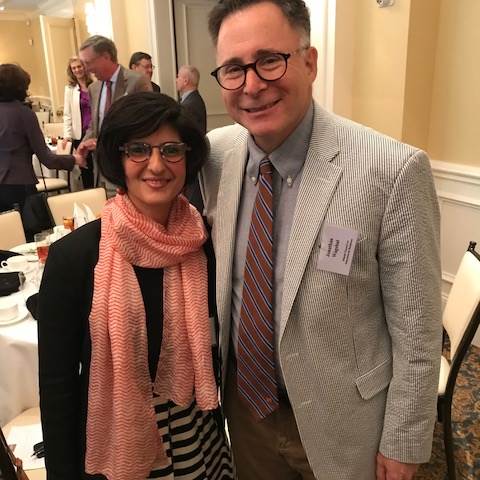

Since arriving at Darlington in 2016, I’ve had the wonderful opportunity to join the Atlanta Council on International Relations, which hosts guest speakers who are significant role players in the international community.
Last fall semester, several students in my Global Issues class accompanied me to an ACIR luncheon at the Capital City Club, at which the Israeli Consul General to the Southeastern U.S., Ambassador Judith Shorer, gave a presentation on regional issues with a focus on Palestine.
I’ve just returned from another ACIR event, this one a presentation on “The Rise of Islamic Politics in Turkey” by Dr. Mona Tajali. She is an Assistant Professor of International Relations and Women's Studies at Agnes Scott College. Her research and teaching interests fall in the fields of comparative politics, Middle East studies with a particular emphasis on Turkey and Iran, and women's studies.
Dr. Tajali’s talk gave us a brief history of Turkish politics, to lay a foundation for understanding the current state of play. She discussed Turkey’s historic role as an important NATO partner to the U.S., and how Turkey had specifically avoided religion in government in pursuit of a more “western style” approach to domestic politics under the influence of Ataturk. She then discussed the changes afoot under the regime of President Erdogan, as he establishes what she described as a police state that is imprisoning critical journalists and political opponents. She also discussed the dynamic of his regime increasingly embracing religion in governance, looking increasingly eastward as opposed to westward in its relationships, and his contentious relationship with the Kurds, who are important partners to the U.S. in the fight against ISIS. She ultimately discussed her optimism for a future roll-back of Erdogan’s direction, based on the longstanding values of civil society in Turkey.
I asked her if she felt that civil society is “racing the clock” as the Erdogan administration establishes a sort of “new normal,” and she does believe that to be the case. In all, her presentation was very thought-provoking and made clear the importance of understanding Turkey - its international role, and its politics and culture - in framing American foreign policy.
As I look forward to my next ACIR event, a talk by Izumi Nakamitsu, the UN Under Secretary General High Representative for Disarmament (she reports directly to the head of the UN on issues including North Korean and Iranian nuclear weapons programs), I am thankful for this amazing opportunity, just down the road, to plug in to key global issues and bring these insights to our students.